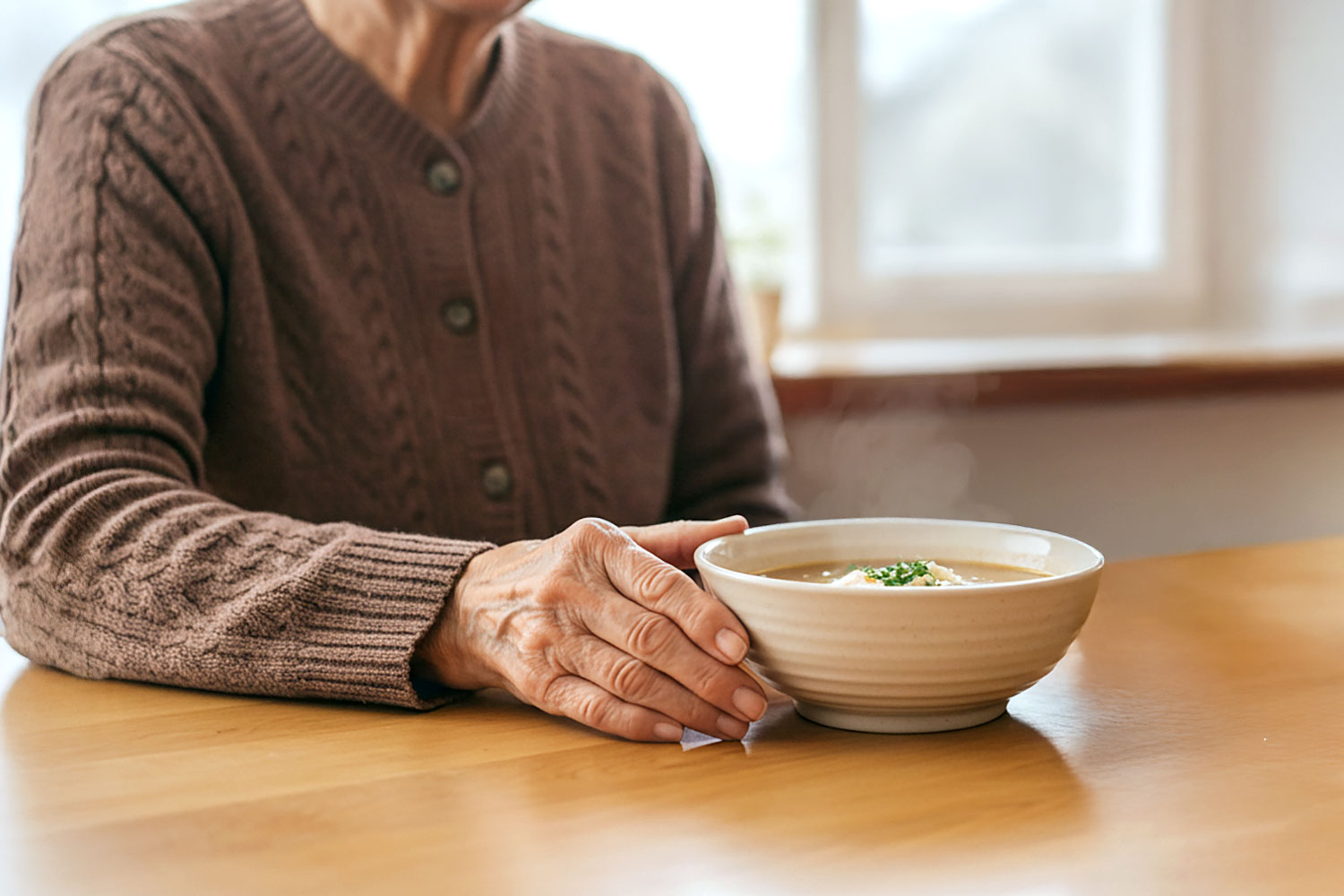Happiness Enters Through the Door of Gratitude
Gratitude is the ability to recognize and savor the value of what we already possess. It asks for no conditions.
There was once a young man who was perpetually dissatisfied. He would criticize his professors for not meeting his expectations and frequently lash out at those around him with words laced with irritation. Dissatisfied with his reality, he set off on a solo journey in search of escape. Yet his journey was filled with setbacks—flight delays, a lost wallet, and one mishap after another. While wandering in despair, searching for an affordable place to stay, an elderly woman kindly invited him into her home. As she served him a warm bowl of soup, she said to him gently, “There is a remarkable phrase that invites good things into one’s life.”

Intrigued, the young man listened intently. He took her words to heart and decided to live differently from that day on. To his surprise, good things began to follow, and he found himself growing happier. The phrase the elderly woman had shared was simple yet profound: “Thank you.” This anecdote was recounted in a book by a Japanese engineering doctor as a personal experience.
At a steel manufacturing plant in Korea, workers placed gratitude stickers on machines that operated continuously, 24 hours a day. Astonishingly, within two years, the failure rate of these machines was reduced by half. Could the machines have understood the words of gratitude? Investigations revealed that after the stickers were placed, workers developed a stronger sense of care and attentiveness toward the machines, leading to better maintenance.
Gratitude possesses an extraordinary power. It not only has the ability to turn unfavorable situations around but, when practiced consistently, transforms one’s entire life for the better.
Gratitude: A Nutrient for the Soul & Body
When gratitude fills the heart, a smile lingers on the face, and words become gentler and kinder—akin to the emotions felt when one experiences contentment and joy. Just as a needle is always accompanied by thread, gratitude naturally leads to satisfaction, which, in turn, welcomes happiness.

Gratitude is not merely a psychological state; it triggers profound physiological changes as well. Scientists have found that gratitude activates the brain’s pleasure centers, stimulating the release of happiness hormones such as oxytocin, dopamine, and serotonin. These hormones not only enhance joy but also boost cognitive function, foster creativity, and reduce stress, thereby strengthening one’s ability to overcome adversity. Over time, repeated experiences of gratitude condition the brain to adopt a more positive and joyful outlook, yielding lasting benefits.
Dr. Paul Mills from the University of California conducted a study on 186 heart disease patients and discovered that those who embraced gratitude experienced lower levels of depression, greater emotional stability, and improved sleep quality. In a follow-up experiment, patients were asked to keep a gratitude journal for two months. The results showed a reduction in inflammation levels and a decreased risk of developing heart disease.
The reason gratitude influences heart health lies in the close connection between the heart and the brain. When we experience negative emotions like anger or resentment, the brain’s amygdala—responsible for processing stress—becomes activated, triggering the release of cortisol and adrenaline. These stress hormones cause the heart to beat rapidly and irregularly, constrict blood vessels, raise blood pressure, and weaken the immune system—setting off a chain reaction that harms the body. In severe cases, this can even lead to chest pain. However, studies involving heart rate monitoring and MRI scans have shown that heart rate, blood pressure, immune function, and hormonal balance are most stable and optimal when we focus on thoughts of gratitude. Gratitude, then, is more than just a pleasant feeling—it serves as a powerful form of self-care for both body and mind.
Obstacles to Gratitude
Children rarely forget the moments when their parents argued or got angry with them. They tend to remember negative experiences more vividly and for longer than positive ones—and this tendency often carries into adulthood. Even if ten good things happen in a day, a single unpleasant moment can take center stage in our minds. This psychological tendency to focus more on loss than gain, failure than success, and criticism rather than praise is known as negativity bias. As a result, people become more sensitive to anxiety, anger, and fear, while growing indifferent to the blessings they already have. Without awareness of this bias, we may find ourselves complaining constantly—often without even realizing it.

Some insist that venting frustrations openly is beneficial, believing that bottling up negative emotions is unhealthy. However, research suggests otherwise. Studies indicate that expressing complaints aloud or engaging in actions like punching a pillow to release anger often intensifies negative emotions rather than alleviating them. This occurs because the brain fails to distinguish between real and imagined experiences—recalling a negative event feels akin to reliving it.
Comparison is the enemy of gratitude. When we compare ourselves to those who seem better off , we may feel inferior and unhappy; when we compare ourselves to those worse off, we may fall into a sense of superiority. True gratitude comes not from comparison but from appreciating what we already have.
An inflated sense of self-importance can also hinder gratitude. Those with strong narcissistic tendencies are quick to attribute successes solely to their own efforts while disregarding the contributions of others. When one takes kindness and generosity for granted, gratitude naturally diminishes. Overcoming these barriers requires conscious effort to recognize and eliminate the factors that obstruct genuine appreciation.
Gratitude Begins With Awareness, Not Conditions
Unexpected events, uncontrollable circumstances, and situations that evoke negative emotions can arise at any time in life. The only thing within our control is how we choose to perceive and respond to them. Every situation has two sides—what seems good or bad often depends on how we interpret it. The more we focus on the positive and choose gratitude rather than being swayed by external circumstances, the brighter and more abundant our lives become.
Gratitude doesn’t require something special or extraordinary to happen—we can practice it at any time. It is not simply an emotional response to a specific event or condition, but the act of noticing and recognizing the blessings and benefits already present in our lives. Just as we often realize the value of something only when it’s taken away, we can also become numb to the things we should be thankful for if we take them for granted. That’s why we must stay attentive. When we look at the world through the lens of gratitude, we begin to see an endless number of things to appreciate.
Gratitude not only allows us to enjoy present happiness but also helps us reframe past memories in a positive light. Experiences that once felt painful or difficult can come to be remembered as meaningful moments that contributed to our growth. This shift in perspective brings greater flexibility and resilience to how we approach life moving forward. When we recognize that even hardship holds hidden benefits and choose to be grateful, we gain the strength and will to persevere—and needless worry and anxiety begin to fade.

Some may mistakenly view a life of gratitude as a passive attitude—merely settling for less and lacking ambition. But in truth, gratitude involves an active and intentional mindset: it requires us to recognize, feel, and express appreciation. Like physical exercise or learning to play a musical instrument, gratitude takes regular practice and effort to grow. Its impact is greatest when it doesn’t remain only in the heart and becomes a habit of expression. Among the most effective ways to express gratitude are writing thank-you cards, keeping a gratitude journal, and leaving notes of appreciation.
When we adopt gratitude as a way of life, our sense of entitlement begins to diminish, allowing us to see the hidden efforts behind the blessings we enjoy. As our focus shifts outward from ourselves to the world around us, we begin to notice that even the smallest, most ordinary things often carry someone’s dedication and sacrifice. And when negative emotions arise, gratitude serves as an antidote—reducing unnecessary emotional strain and energy drain. Gradually, our hearts grow more generous, and our minds more at ease.
If happiness depends solely on the occurrence of good things, attaining it may prove difficult. Joy rarely appears on its own, and even when we experience something wonderful, its initial excitement tends to fade with time.
However, with gratitude, happiness is always within reach—whenever we choose it. From the moment we open our eyes in the morning to the time we rest at night, let us cherish sharing gratitude with our family and see one another as sources of thankfulness. As the saying goes, “Happiness enters through the door of gratitude,” and in a happy home, that door is always open.